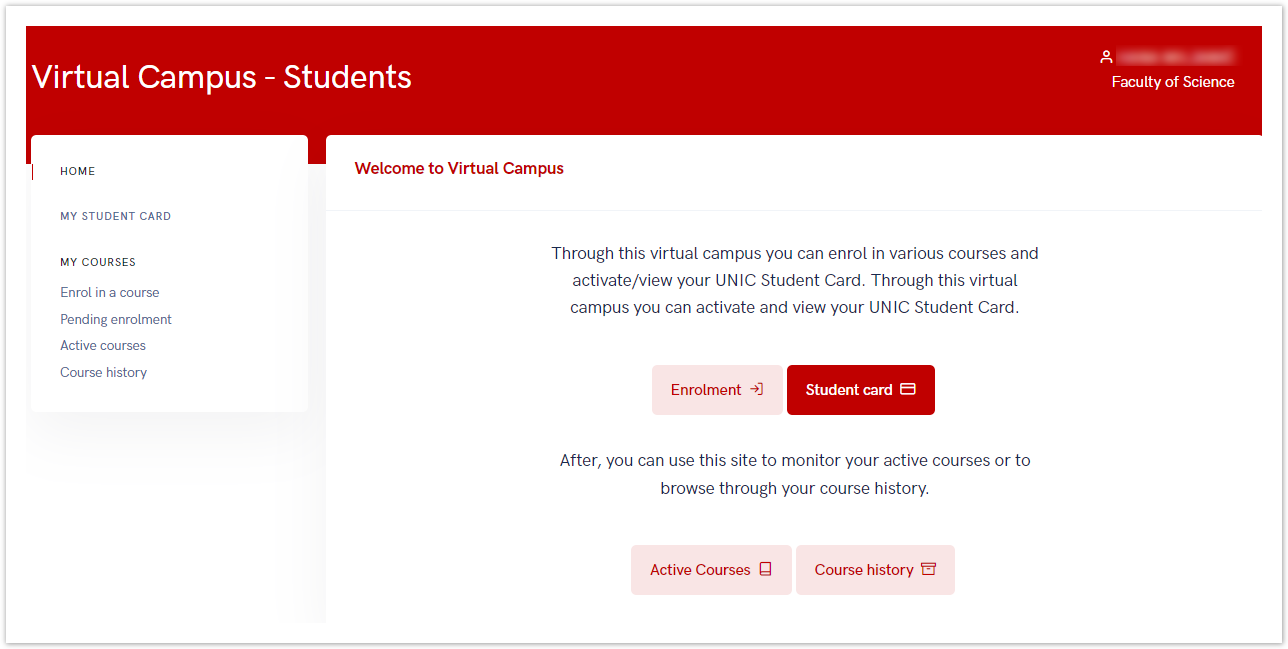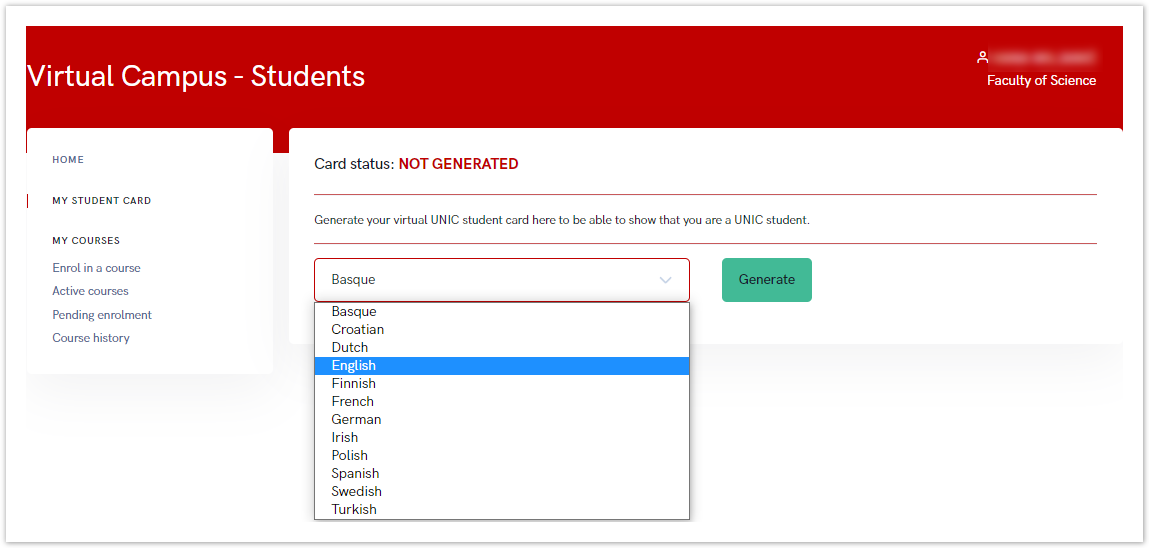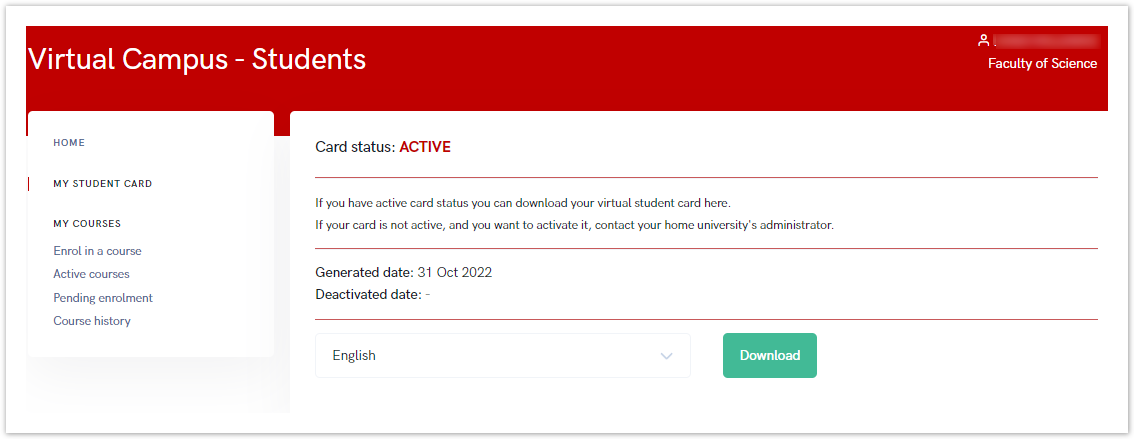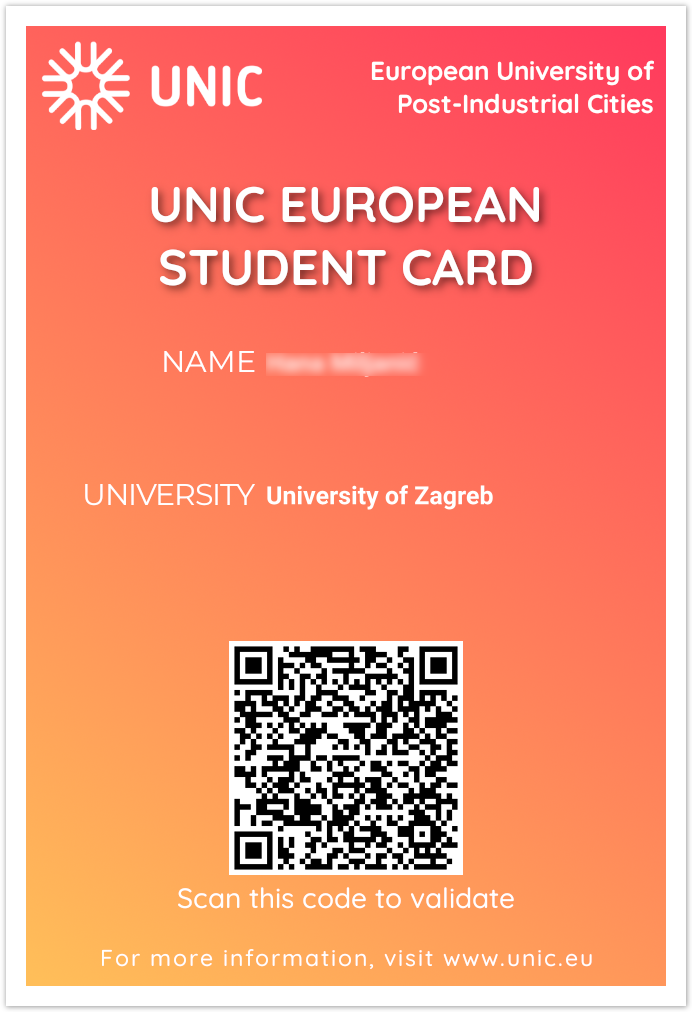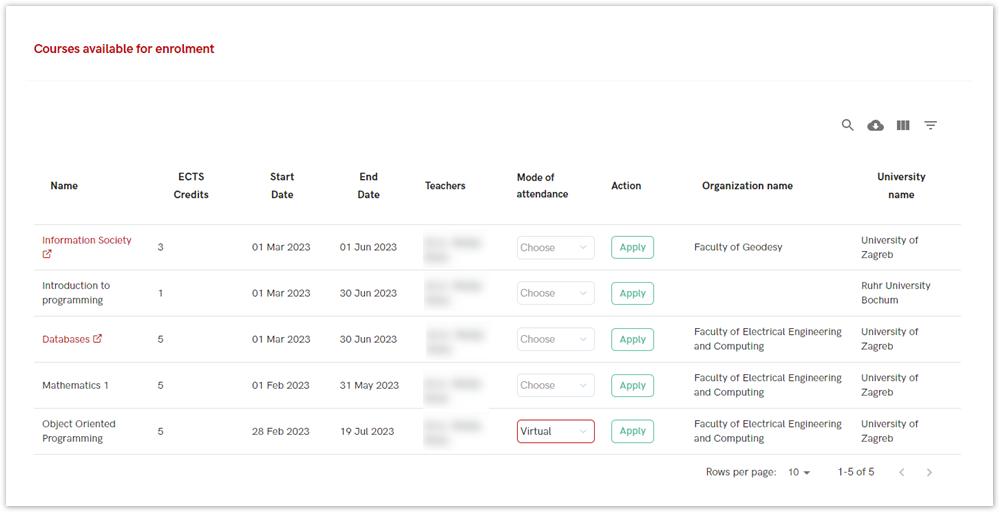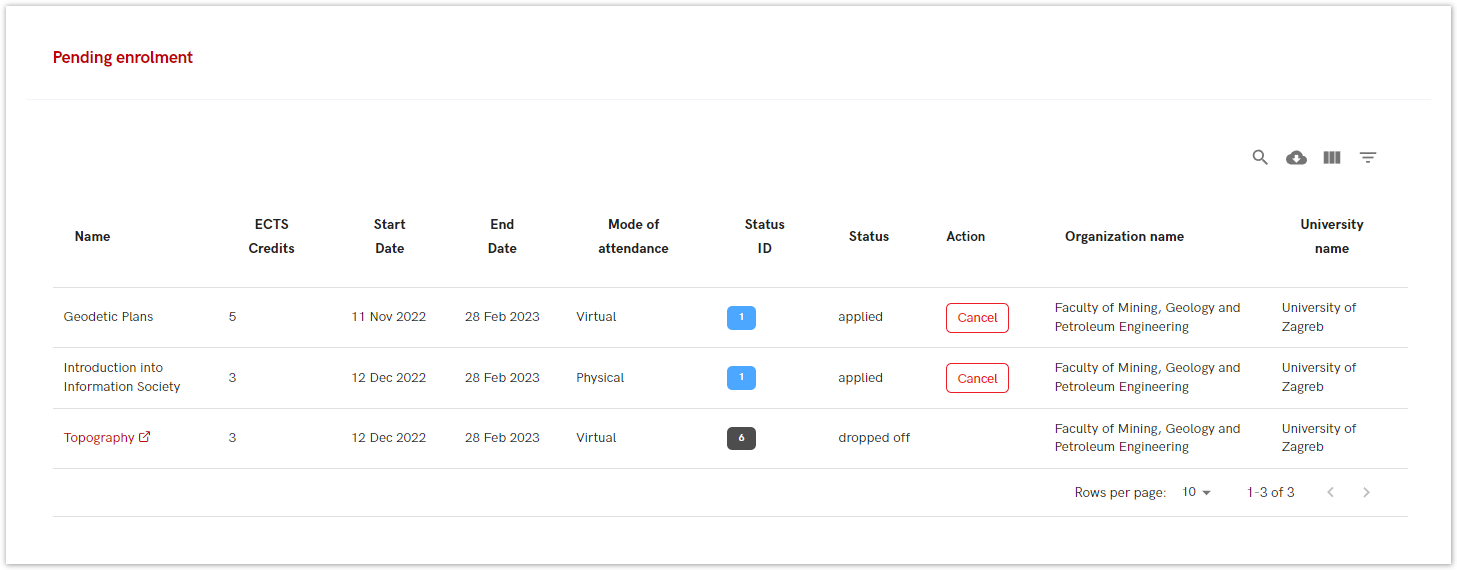...
| Section | |||||||||||
|---|---|---|---|---|---|---|---|---|---|---|---|
|
Figure 1. Student's home screen
My student card
Student can generate and download virtual UNIC student card. The card provides identifies and provides information about UNIC student.
...
| Info |
|---|
Student Card Process
|
After selecting the language in which the data on the card will be displayed, student must choose the Generate button.
Figure 2. Card status - Not generated
...
First time generated UNIC card is automatically activated and student can downloaded download it. If for some reason, UNIC student card is deactivated, student must contact it's home university administrator for the card's activation.
Figure 3. Card status - active
The layout of the UNIC student card is shown in Figure 4.
Figure 4. UNIC European student card
...
My courses menu offers an overview of courses, student's active courses, pending enrollment's enrolments and course history.
Enrol in a course
There are various visible information about specific courses, such as:
- Name - name Name of a an offered course
- ECTS credits - ECTS credits which student will receive after completing the course
- Start and End dates - Period when the course will be held
- Organization's name - The name Name of the organization performing the course
- University name - The superior university to the organization performing the courseName of the parent university
- Mode of attendance - Attendance can be virtual or Physicalphysical
- Action
...
- - Apply on to the desired course
Figure 5. Courses available for enrolment
Pending enrolment
After students had selected the courses which they want to enrol in, the course become visible in the menu Pending enrolment, and it's status has change to "applied". OrgAdmin has to accept or decline student's course in order to change it's status to active.
...
There are various visible information about specific courses, such as:
- Name - name Name of a an offered course
- ECTS credits - ECTS credits which student will receive after completing the course
- Start and End dates - Period when the course will be held
- Mode of attendance - Attendance can be virtual or Physicalphysical
- Status ID and Status - Status ID and an explanation of the status. For more information about status, please visit chapter Status explanation
- Action - only available action is to cancel pending course
- Organization's name - The name Name of the organization performing the course
- University name - The superior university to the organization performing the course
...
- Name of the parent university
Figure 6. Pending enrolment option
Active courses
Active courses are those courses in which the student is enrolled.
There are various visible information about specific courses, such as:
- Name - name Name of a an offered course
- ECTS credits - ECTS credits which student will receive after completing the course
- Academic Year - the The academic year in which the course is taught
- Start and End dates - Period when the course will be held
- Organization's name - The name of the organization performing the course
- University name - Name of the parent university
- Mode of attendance - Attendance can be virtual or physical
Figure 7. Active courses option
Course history
The student's activities related to a particular course are shown in the option Course history.
There are two visible sub-option: Finished courses and Courses status.
There are various visible information about finished courses, such as:
- Name - The superior university to the organization performing the courseName of an offered course
- ECTS credits - ECTS credits which student will receive after completing the course
- Academic Year - The academic year in which the course is taught
- Start and End dates - Period when the course will be held
- Mode of attendance - Attendance can be virtual or physical
- Status ID and Status - Status ID and an explanation of the status. For more information about status, please visit chapter Status explanation
- Organization's name - Name of the organization performing the course
- University name - Name of the parent university
Figure 8. Finished courses tab
There are various visible information about course status, such as:
- Name - Name of an offered course
- ECTS credits - ECTS credits which student will receive after completing the course
- Academic Year - The academic year in which the course is taught
- Start and End dates - Period when the course will be held
- Mode of attendance - Attendance can be virtual or Physical
SLIKA!
SLIKA!
Course history
There are
...
- physical
- Grade - The grade with which the course was passed
- Organization's name - Name of the organization performing the course
- University name - Name of the parent university
Figure 9. Course status tab
